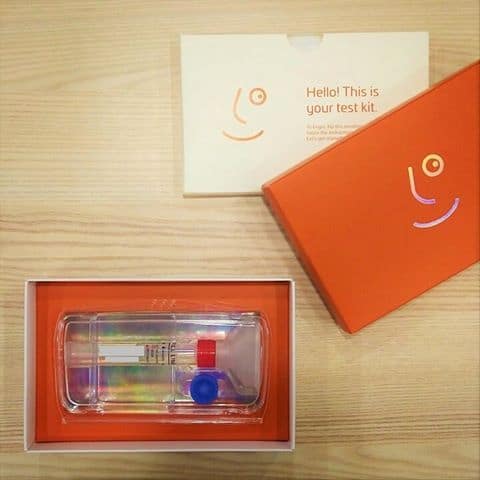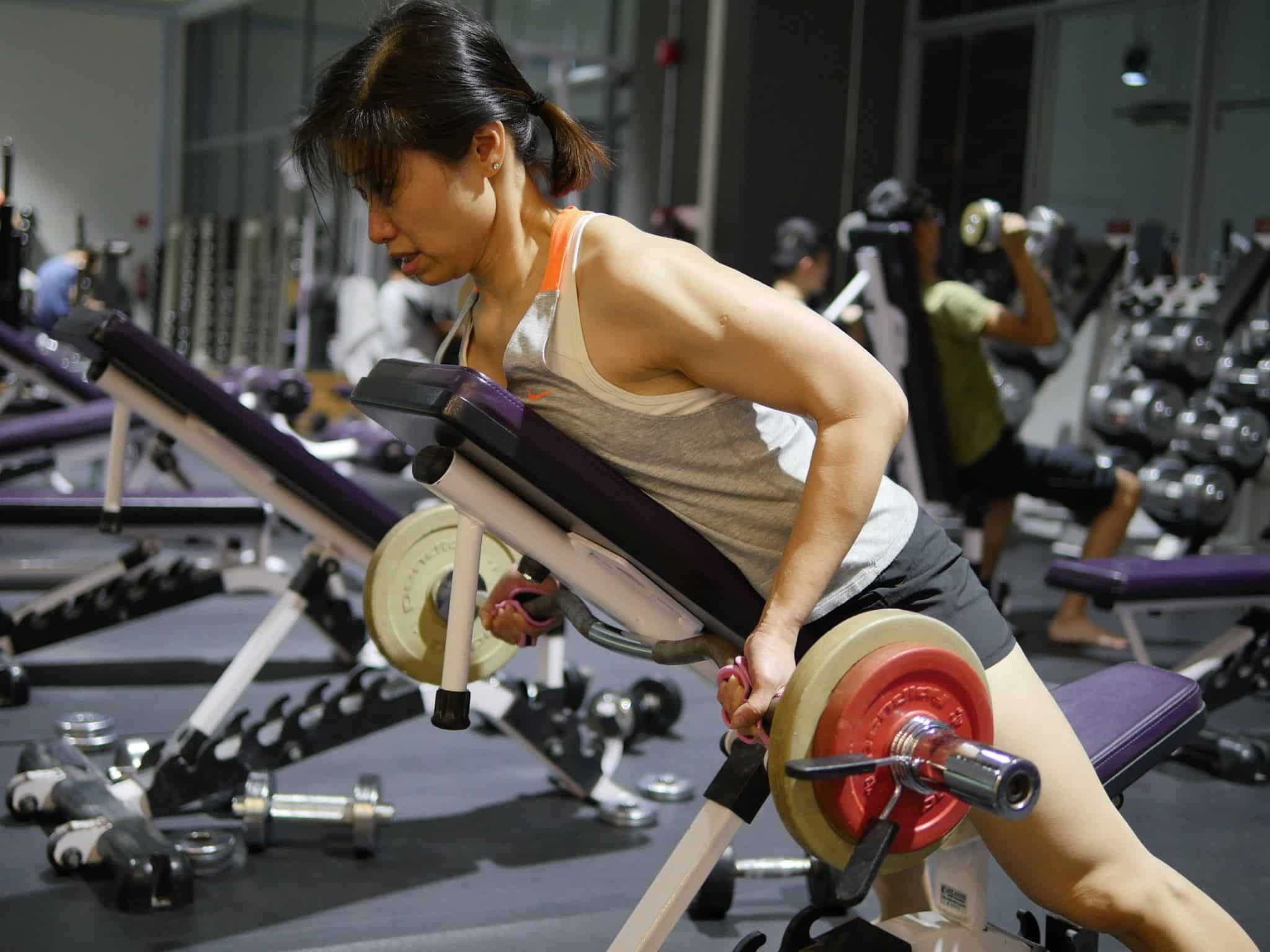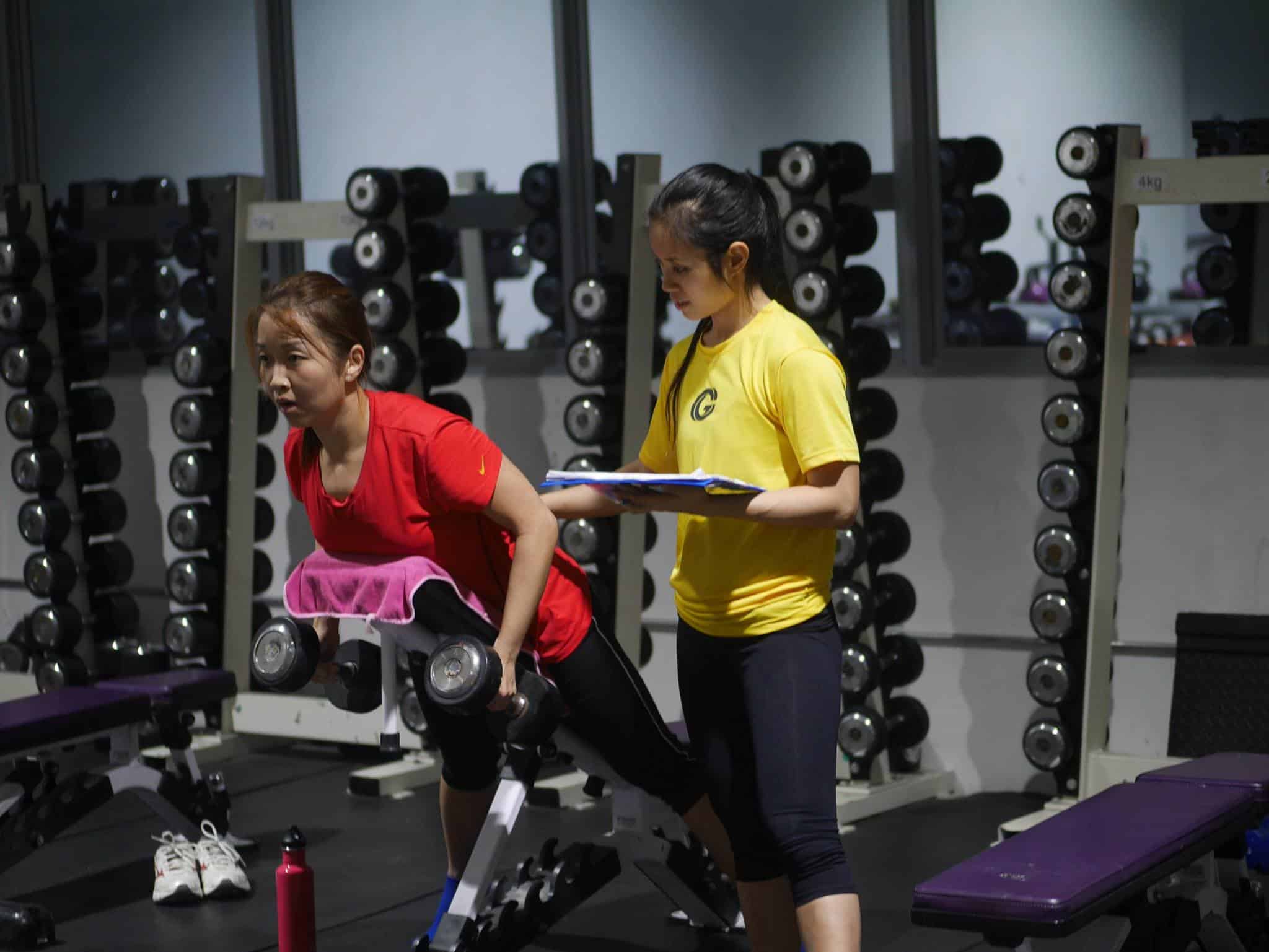
I’m very grateful to have been appointed to the advisory board of Singapore’s only gene testing laboratory, Imagene Labs. Genesis Gym is also the gene lab’s official fitness partner.
Imagene Labs is the first lab in Singapore to provide gene testing for fitness and nutritional customization. The extensive report will be used to further enhance the customized training and nutrition programme of our Singapore personal training clients, hence improving their results.
I am in charge of writing all the recommendations and reports for the fitness related portions of the genetic tests. I believe that these guidelines will help millions of people improve their health, with a better understanding of your genes.

The OriFIT Pro Test Kit

The OriFIT Pro Test Kit
How gene testing for fitness and nutrition gets you faster results
Genes are inherited from your parents. They contain information about how to “do things” in your body. Much of the genes are almost identical among humans. We all have information to build hair, eyes and feet for example.
However, there can be small differences. Should we get black hair or blonde hair? Blue eyes or brown eyes? Big feet or small? These are in large part, determined by genetics.
Genetic testing today is simple and painless. The process requires just 5ml of your saliva sample, from which DNA can be extracted and analysed via state-0f-the-art DNA microarray technology.
At the end of the process you get a report. This report shows what are known as Single Nucleotide Polymorphisms (SNP, pronounced “snips”).
These are small variations in the genes. They can determine physical traits, as well as things like risk of health conditions, response to nutrients and preference for different types of exercise.
These gene variations have been selected based on hundreds of genetic studies published in internationally peer-reviewed journals, and are proven to contribute the traits chosen in your tests.
At the end of the process you get a truly scientific, personal and user-friendly report which shows your genetic predisposition, along with lifestyle, diet, and exercise recommendations, so you can take action to optimize your food intake and training.
I would say that an experienced coach could also figure out many of the traits of a client by simply applying sound sports science knowledge, good communication, and observation skills.
The Genesis Gym team has been doing this for more than 10 years with good success!
But using insights from your individual genetic predispositions, a good coach or personal trainer can help you cut through the trial and error and zoom in on customizing an effective training, nutrition, and lifestyle plan to get you to your fitness goals in a fast and smart way.
In short…
Implementing a programme that takes your genes into account helps you get faster results, with greater safety, and less guesswork.
A seven-step process to customizing a person’s fitness plan
I have personally gone through the gene-testing procedure so I will use my own test results as an example of how our team would customize a health plan.
I will show the thought process of how we make adjustments to a client’s plan when taking the results of a gene test as one of the factors.

Genetic testing can help to determine whether a client is more suited to endurance or strength training.
Step 1 – Look to see if the client is more suited to high-rep training (more endurance) or low-rep training (more strength and power)
In my case, I am good at power/strength (80th percentile) and slightly above average in endurance (65th percentile).
That means that a mixture of rep ranges would be good for me. But with a greater emphasis on speed and strength training over endurance exercises. I have found this to be quite accurate with my best progress in training coming when I do 3 weeks of heavy weight lifting, followed by about 1 week using lighter weights.
Step 2 – Look to see how well the client can recover from exercise
In the genetic traits for recovery from training, I am below average overall. I score 85th percentile for both muscle soreness as well as muscle damage risk. In addition, I am also average in aerobic performance. These are all factors that influence recovery from exercise.
This matches up well with the kind of training programmes that I have made best progress on. I do well training extremely hard twice a week. And with an additional one or two moderate sessions. In the last 20 years that I have been consistently exercising, I have tried training more than that but ended up with worse progress – or sometimes, no progress at all despite 6-8 weeks of hard work.

Coach Eleanor guiding a client through the reps based on the client's customised training programme
Step 3 – Look at the client’s injury risk
There is a genetic component to injury from exercise. The greater a client’s risk, the more preventive measures must be taken. The abilities to maintain flexibility, achieve perfectly aligned posture and keep good soft tissue quality are some of the key factors to staying injury-free, especially if a client has a high genetic disposition to get hurt.
I have an average injury risk overall. 65th percentile for stress fractures, 85th percentile for muscle tears, but 25th percentile for overall injury risk. To mitigate these factors, I make sure I have perfectly aligned posture to keep joints from wearing out. To do so I use the Genesis Posture Therapy system on myself!
Step 4 – Look at the client’s risk for obesity
The gene test looks at several genes that influence how much fat we store. The greater these scores are, the more we need to emphasize nutrition planning as well as having a more active daily lifestyle outside of regular exercise (An active lifestyle has a 30 percent decrease in risk of early death too! See tip #10 of our ultimate guide to fitness after 40)
I don’t have many genetic factors for obesity (about 20th percentile for those) but I have a poor resting metabolic rate (bottom 20th percentile). This means that as long as I don’t overeat, I should be able to stay lean. I also need to focus on foods that help keep me full because I am average (50th percentile) in the “feeling full” gene as well. I know for a fact that I love to eat large amounts. Too bad though, as the slow metabolism makes that a bad idea!
Step 5 – Look for other factors which can affect results
The gene test report also looks at aversion to exercise (yes, preference for an active lifestyle has genetic factors too), as well as fitness benefits from exercise and how fast your resting heart rate improves as you exercise. All these can contribute to the overall benefits an exercise programme.
I score above average in these factors. So, getting up to go for a training session is not a problem for me. If a client has a low score in these areas, we would use customized communication techniques, as well as social support to help them get up and go.
Step 6 – Look for diet type suitability
In the nutritional section of the gene test, we get an indication of what diet types are likely to work for a client. The test looks at a low-fat diet, a Mediterranean diet and a reduced-carbohydrate diet. Many healthy diets share similarities like avoiding overeating, and getting enough vegetables and sufficient protein and fibre. But the fat/protein/carbohydrate ratio can make a difference too.
I score well on all the different diet types. That means, most diets should work as long as I don’t overeat.
Step 7 – Fix possible nutrition deficiencies
The nutrition section covers more than 20 nutrients, and it can show which nutrients you are likely to need more of. I scored well in most nutrients but I have a genetic need for some of the B vitamins as well as polyunsaturated fats. I was 100th percentile in extra polyunsaturated fat needed.
This means lots of eggs, green veggies, and a multivitamin with lots of active B vitamins, as well as additional fish oil supplementation for me.
This test helps you save money on supplements. Because you only spend on those that you need more of.
Combining genes with lifestyle
Our genes are like a big library of information, which can be used to help our bodies function, build and repair.
But this library is special - you can’t take the books home. You can only photocopy the page you need and use that as your set of instructions.
What determines which pages of the books get photocopied?
Does the page with the diabetes information get copied? Or does the page with the healthy instructions get copied? The page with cancer information, or the page with cancer killing information?
A large part of this is determined by the environment we put ourselves in.
For example, from my gene test it appears that I have a genetic need for greater than normal vitamin D requirements.
If I put my body in an environment without vitamin D sources - no sunlight, no egg yolks, no oily fish, etc - my chances of getting problems related to this deficiency are higher than average. Weaker bones and lower male hormones are likely results.
However if I eat those foods, get sunlight daily and perhaps even take some vitamin D supplements, my changes of those deficiency related problems go down drastically.
In effect, the “weak bone” instructions never get read in my gene library!
The same holds true for all these gene test results.
Poor motivation for exercise? Make a schedule and find a buddy. Put yourself in an “exercise-rich” environment and that gene is less likely to express itself.
Poor aerobic performance? Do 2 interval training sessions per week and those genes aren’t likely to give you a problem.

Coach Jen from Genesis HQ doing a posture assessment using Genesis Posture Therapy.
High injury risk? Make sure you have good flexibility, perfect postural alignment and high quality food after exercise to help kick-start the repair process.
These are just some examples of how you can control the environment to overcome most genetic weaknesses.
Conclusion
And here, we have my thoughts on gene testing and fitness. Yes, knowing your gene profile is helpful. It can save you time. It can help you train safer. It can save you money on supplements.
But genes do not permanently fix your destiny! You still have a large portion of control. So I encourage you to put yourself into a healthy environment so only your best genes show up.
You can’t be anyone you want to be. But you can be the best possible version of yourself!
If you want to get a special price on gene testing (gym clients only!) as well as a programme and lifestyle planned specially for you, we welcome you to be part of the Genesis family.
With your genetic factors taken into account, the Genesis Gym personal trainers (Singapore) will design the nutrition, lifestyle and fitness plan for you and guide you to your fitness goals.
To your continued strength, health and happiness,
Coach Jonathan Wong
Director,
Genesis Gym Singapore
